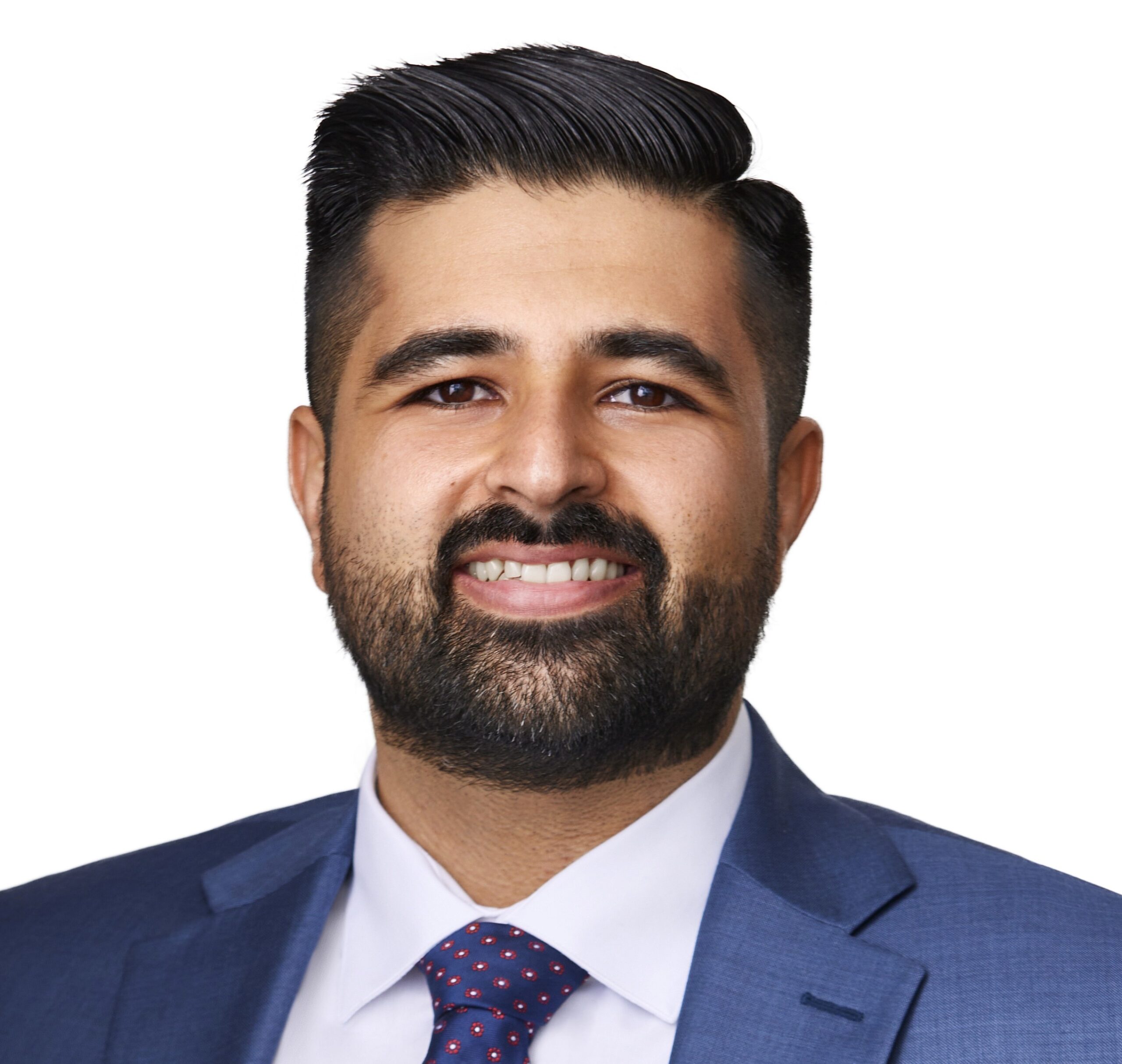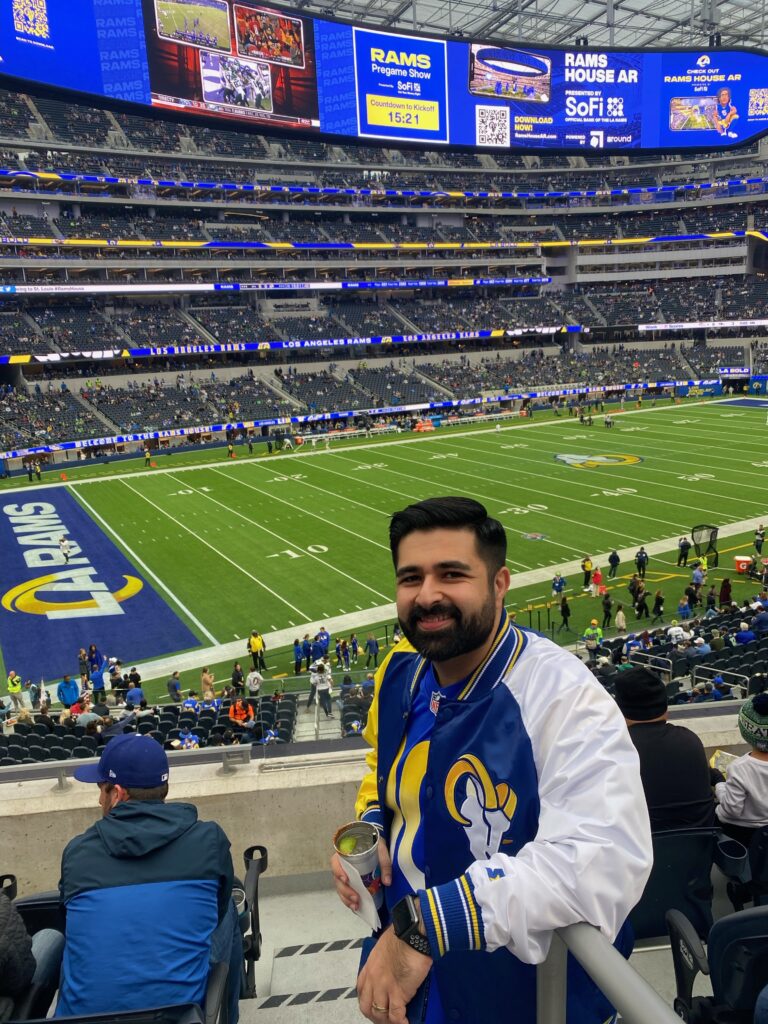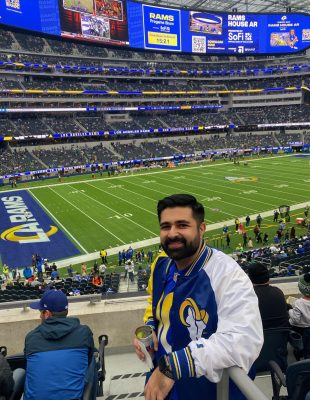Attorney Spotlight: Edward J. Babakhani
Home » Attorney Spotlight: Edward J. Babakhani
Home » Attorney Spotlight: Edward J. Babakhani
Edward J. Babakhani is a Senior Associate with Keystone Law Group, P.C., who practices primarily in trust, estate, and conservatorship litigation matters. Prior to joining Keystone, Edward practiced at two probate law firms in Los Angeles where he managed a team of attorneys who represented beneficiaries, trustees, executors, creditors, and conservators in all aspects of probate, trust, estate, and conservatorship litigation.
Edward has extensive experience litigating heavily contested probate matters and is passionate about representing individuals who are vulnerable to wrongdoing. Edward helps his clients resolve contested litigation through creative thinking and the implementation of strategies to accomplish a client’s goals.

Fast Facts

Ed is able to build strong, trusted relationships with clients while managing a demanding caseload and driving cases forward. His deep knowledge of probate law and well-earned reputation with clients, courts, and mediators alike make him an exceptional advocate. Beyond his professional skill, Ed is a steady, respected presence and a great team player, and we are fortunate to have him as part of our firm.
– Partner Roee Kaufman
- Grew up in Glendale
Graduated from University of California, Irvine with an undergraduate degree in History
Graduated from Loyola Law School
- Exclusively practiced probate litigation as an attorney
Enjoys cooking and watching sports

What have been some of your most memorable cases?
One of the most memorable cases I’ve worked on involved a woman who reached out, believing she was the daughter of the decedent. Her situation was complicated: her mother had a child with him out of wedlock, and due to cultural stigma within her family, his name was never listed on her birth certificate. When her half-brother filed for probate, he claimed she wasn’t his sister and therefore not entitled to any inheritance.
The heart of the case was about her identity and whether she had a rightful claim. There wasn’t much documentation to support her relationship, and genetic testing motions are rarely granted in probate court. But instead of pushing through a difficult legal route, I reached out to the attorney representing her brother and proposed a collaborative solution: voluntary genetic testing using a sample from the decedent’s belongings. Thankfully, they agreed.
The results showed a strong likelihood that both siblings were biologically related to the decedent. Legally, it meant she was entitled to her share of the estate. But more than that, it gave her something deeper—confirmation of her father, and a sense of closure she’d been missing her entire life. It was a reminder that probate isn’t just about assets; it’s about people, relationships, and the truths that shape them.
What inspired you to pursue a legal career?
My first internship was during my time at UC Irvine. I started as an undecided major and wasn’t sure which direction I wanted to take, though I had a strong interest in history. After meeting with my counselor and reviewing course options, she encouraged me to apply for a law internship at a local firm—something I hadn’t considered before. I trusted her guidance, found the idea intriguing, and applied to a firm in Orange County. I was offered the position and started as a summer intern, eventually staying on until I graduated.
The firm had an attorney who specialized in home mortgage and real estate law, and I worked closely with her on loan modification cases. We helped clients reduce or defer payments due to financial hardship, and I’ll never forget the first time a client called to thank me—it was clear how much our work had impacted their life. That moment really stuck with me. I realized how rewarding it was to make a meaningful difference, and while I didn’t see myself pursuing loan modifications long-term, the experience sparked a genuine interest in law. From there, I committed to the path, took the LSAT, and began preparing for law school.
What do you like most about the work that you do?
It’s the opportunity to make a meaningful impact on clients’ lives. In probate especially, I get to work with everyday people—individuals who are often navigating emotionally charged and unfamiliar territory. Our clients come from all walks of life: some are elderly, some are vulnerable, and others are simply trying to understand what it means to inherit something. Regardless of their background, they’re usually facing a process they’ve never encountered before.
Being able to guide them through that is incredibly rewarding.
I find purpose in helping people feel supported and informed during a time that can be overwhelming.
– Senior Associate Edward J. Babakhani
And because I genuinely relate to many of the clients I serve, I’m able to represent them with empathy and clarity. That connection is what makes the work so fulfilling.
What do you enjoy most about working at Keystone?
What I enjoy most are the people. There’s a genuine sense of support across all levels of the firm that I hadn’t experienced before. At previous firms, while everyone had defined roles—attorneys, paralegals, staff—it often felt transactional, like we were just moving through tasks without much collaboration or encouragement.
At Keystone, it’s different. Our legal assistants are incredibly efficient and proactive, handling everything from A to Z and making the workflow seamless. The associates are approachable, open to feedback, and eager to contribute, which makes working with them a real pleasure. And the partners set the tone—they’re respectful, invested in our growth, and treat us not just as attorneys developing our legal skills, but as people navigating our careers and lives. That level of support, both professionally and personally, is what makes Keystone stand out.
What is the most valuable thing a lawyer can do for their clients?
The most valuable thing a lawyer can do for their clients is listen. When you take the time to understand what truly matters to a client, you build trust, and that trust makes every legal success more meaningful. Sometimes what a client wants most isn’t the biggest financial win or the most strategic legal outcome—it might be something deeply personal, like a sentimental item from a loved one’s estate. In those cases, it’s our job to prioritize their goals, not just the ones we think are best on paper.
Listening also helps during setbacks. If a motion is denied or a ruling doesn’t go our way, clients who feel heard are far more understanding. They know you’ve been in their corner, and they respect the effort. That connection makes it easier to guide them through tough moments and keeps the relationship strong.
Ultimately, listening is what transforms legal representation into true advocacy.
– Senior Associate Edward J. Babakhani
What advice would you give to someone starting their career in probate litigation?
My biggest piece of advice is to absorb as much as you can early on. Take the time to build a deep understanding of probate—not just the surface-level concepts, but the nuances that shape how cases unfold. One of the best tips I received was to read The Rutter Group California Practice Guide – Probate Edition cover to cover. A partner recommended it, and it’s been invaluable. Having that kind of foundational knowledge gives you something to anchor to. You’ll find yourself thinking, “I’ve seen this before,” and you’ll know exactly where to look.
Law school teaches theory, but stepping into a firm means drafting pleadings, handling discovery, and speaking with real clients. That transition can be intimidating. So it’s important to feel confident—not because you know everything, but because you’re willing to learn and own where you’re at. It’s perfectly okay to say, “I’m not sure, but I’ll look into it and get back to you.” That kind of honesty builds trust.
Probate litigation is complex, but if you stay curious, open, and grounded in the fundamentals, you’ll find your footing.
How do you stay motivated and overcome challenges in your role?
My motivation has definitely evolved recently. Becoming a parent to a four-month-old has shifted my perspective—my world now revolves around my son. That change has deepened my sense of purpose.
I’ve always been driven by the desire to help clients and make a meaningful impact through legal work, but now there’s an added layer: I want everything I put my name on to reflect a high standard, something I’d be proud to show my son one day.
– Senior Associate Edward J. Babakhani
When it comes to overcoming challenges, I focus on effort and integrity. I go the extra mile to make sure every document, every interaction, reflects 100% of my commitment. I need to be the best version of myself—professionally and personally. That means staying composed with difficult clients, listening carefully, and navigating situations with empathy and strategy. Challenges will always come up, but staying grounded in why I do this work, and who I’m doing it for, keeps me motivated.
What do you think the future holds for this area of law, and how are you preparing for it?
I think this area of law will continue to grow and evolve. One major development I’m anticipating is the role of AI. Whether it’s reviewing medical or financial records, drafting outlines, or even assisting with trial prep, AI has the potential to streamline a lot of the backend work. The question is whether it will remain a support tool or become something more central to our practice.
Another emerging area is digital assets—cryptocurrency, NFTs, and other nontraditional holdings. Right now, probate largely deals with tangible or traceable assets like real estate or bank accounts. But what happens when someone owns ten bitcoin stored on a hard drive that no one knows exists? How do we locate, value, and distribute those assets? As younger generations accumulate wealth in these forms, I think digital asset management will become a much bigger part of probate litigation.
When you are not working, what would people find you doing?
When I’m not working, you’ll most likely find me spending time with my four-month-old son and my wife. Whether it’s during a lunch break or after hours, I’m usually holding him, feeding him, or just soaking in the moment. They’re only that age once and watching him grow day by day has been incredible.
Outside of that, I love going out with my family and we make it a point to explore new food spots on the weekends. Before becoming parents, we traveled often, and we still try to keep that spirit alive. At least once a year, we aim to visit a new country, experience different cultures, try new cuisines, and learn as much as we can. That curiosity definitely ties back to my background in history.
What might people be surprised to know about you?
I was born in London, England. My parents lived there for about 15 years, and we moved to the U.S. when I was just a year old. I hold dual citizenship in both the UK and the U.S., which has always been a unique part of my background.
I am elated to have achieved a righteous outcome with the representation of Keystone Law Group. Edward Babakhani‘s professionalism, knowledge and guidance was particularly instrumental in the favorable outcome of my case. I’m relieved to have saved a considerable amount of time/money and avoided seemingly endless sibling related aggravation. Edward’s legal might was just what I needed!
We had a great experience with Keystone Law Group. They handled a sensitive family situation with tact and expertise. Edward Babakhani and team were great in explaining in detail everything we needed to know about the court proceedings.
Edward Babakhani, Lindsey Munyer and the rest of the team at Keystone really hit it out of the park for us. Their professionalism, hard work and expertise are very much appreciated. They really did a great job for us and I wouldn’t hesitate to hire them again.



